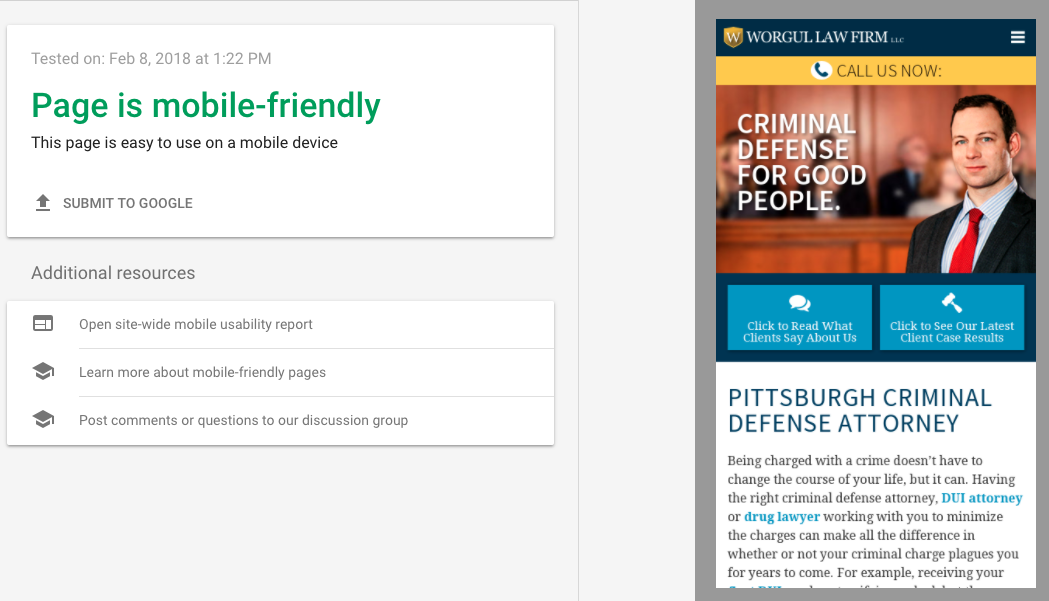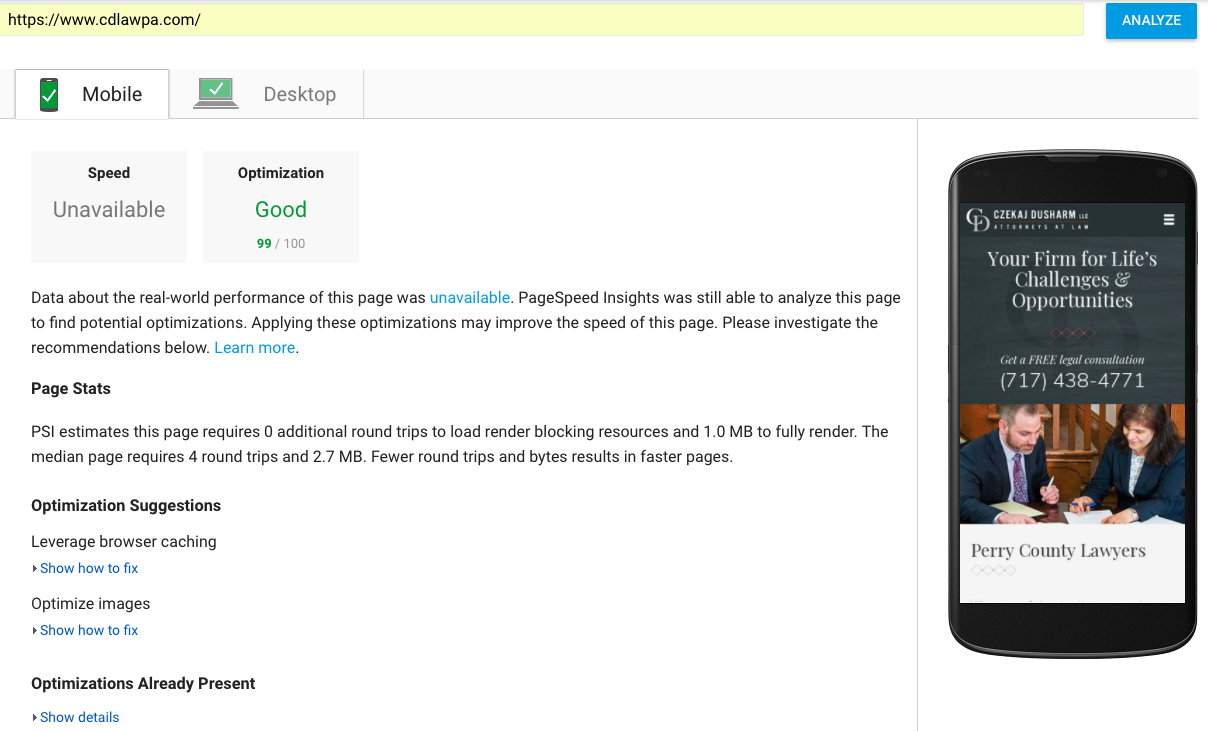Digital Marketing, SEO, Web Design

Maintaining Strong Law Firm SEO Rankings
There are over 200 factors that determine how well your law firm’s website ranks in Google. While organic search can be an important driver of new business for law firms, it also can be a bit nerve-wracking.
Google is constantly updating their algorithm. Sometimes there are ranking shifts with seemingly no explanation. For a law firm, a shift in ranking for a handful of important keywords has the ability to significantly affect business.
If you invest in SEO for law firms, avoid spammy tactics like paid link building, make continuous updates to improve your user experience and provide relevant content, you generally don’t need to worry. Those shifts in rankings will be positive ones, and Google will penalize your competitors who may not be using white-hat SEO techniques.
Even if you shouldn’t worry, it’s in our nature. The reality is that every time Google makes an announcement about a change to their algorithm, it induces panic in the SEO community. As a business owner that relies on SEO to generate new leads for your law firm, you should understand Google’s algorithm updates and make sure you’re prepared.
Starting in July 2018, page speed will become an official ranking factor in mobile search. This is aptly referred to as the Speed Update.
Understanding the Google Page Speed Algorithm Update
1. Websites with slow mobile load speeds will not rank as highly.
Google algorithm updates aim to improve overall user experience, and mobile experience is extremely important to Google. With the Speed Update, Google states on the Webmaster Blog that pages that deliver “the slowest experience to users” will be affected. It’s unclear how many sites will be affected, but you can generally expect organic search results to experience some fluctuations as the algorithm updates begins rolling out in July.
2. Page Speed is already a ranking factor on desktop.
Google wants to reward sites that provide the best user experience. Regardless of the device you’re using, a slow-loading website is a poor and frustrating experience for your website visitors.
We often see law firm websites that look visually appealing, but that’s only one piece of the puzzle. Desktop pages peed has been a ranking factor since 2010, so it’s not exactly a surprise that mobile speed will now be incorporated into Google’s algorithm.
3. This could be an opportunity for your firm.
While everyone tends to worry about their websites when an algorithm update is looming, one benefit is that it often forces you to make improvements.
With the Speed Update, any improvement you make to prepare will also benefit your website users. If your content loads faster, you make it easier for mobile users to learn about your firm and contact you. It’s a win-win situation.
How to Audit your Law Firm Website
Not sure how your law firm website stacks up? Here are a few quick ways to gauge its mobile speed and overall experience. If your website passes these tests, you can feel confident that it will not be penalized when the algorithm rolls out.
In fact, you may see a ranking boost if Google penalizes your competitors’ websites. We see this happen in the legal industry quite frequently, as unfortunately there are still a large number of websites that are not built with SEO best-practices in mind.
If your mobile website is less-than-stellar, the good news is that you have some time. This update will roll out in July, so there’s no excuse not to be ready for it.
1. Mobile-Friendly Test
Run your firm’s website through Google’s Mobile-Friendly Test Tool. This will give you a quick answer as to whether or not your website is easy to use on a mobile device. If it’s not, Google will also provide details on how you can improve.

2. Google Lighthouse
Use the Google Lighthouse Chrome extension on your website. This extension has several capabilities, and a few are especially helpful for auditing your page speed. The Perceptual Speed Index is one metric that measures how quickly your content loads. The tool will also alert you if your website is slow to load on certain network connections like 3G.
3. PageSpeed Insights
The PageSpeed Insights tool is one of the most commonly-used tools to quickly audit desktop and mobile speeds. While perfect scores of 100 are a rarity, you want your website to be “In the Green” on both desktop and mobile.
Currently, the overall score metric is unavailable for mobile, but the tool still provides a lot of detail on your mobile speed and things you should address.

4. Check the competition
As with most things in SEO, your performance is much more relative to your competitors than it is to the internet as a whole. Think of it this way. If the overall standard for page speed was 3 seconds, but every law firm website in your area loads in 5, then you should aim to achieve a 4-second load speed or better. You always have to understand the competition in your location and practice area in order to set goals with SEO. Every test you run on your own site, you should run on the top-ranking sites in your practice area.
You can read multiple statistics and benchmarks telling you how fast your site should load. These are helpful, but at the end of the day, you should aim to have your page load as quickly as you can.
Things like Live Chat or a video may increase your load time. There are workarounds, but you should always look to balance a positive user-experience with quick page load speeds. Removing that video for an extra fraction of a second may not be worth it.
You can also use Google Analytics to measure your bounce rates as you make improvements to your speed. This will give you an idea of an optimal speed for your law firm website.
Work with your web developer or agency on improving the mobile experience so you’re ready when the update rolls out. If you currently outsource your web development and find that it’s not mobile-friendly, you may want to consider investing your website efforts elsewhere. Mobile experience has been an important aspect of web development for several years, and any reputable developer or agency will design with this in mind.
5. Monitor, Monitor, Monitor
After an algorithm update, it’s extremely important to monitor your SEO performance more closely than you normally would. There will be a lot of industry chatter, but at the end of the day, the only thing that matters is how your law firm’s website was affected, whether it’s positive or negative. A strong analytics report is crucial to establish before an algorithm update begins rolling out.




